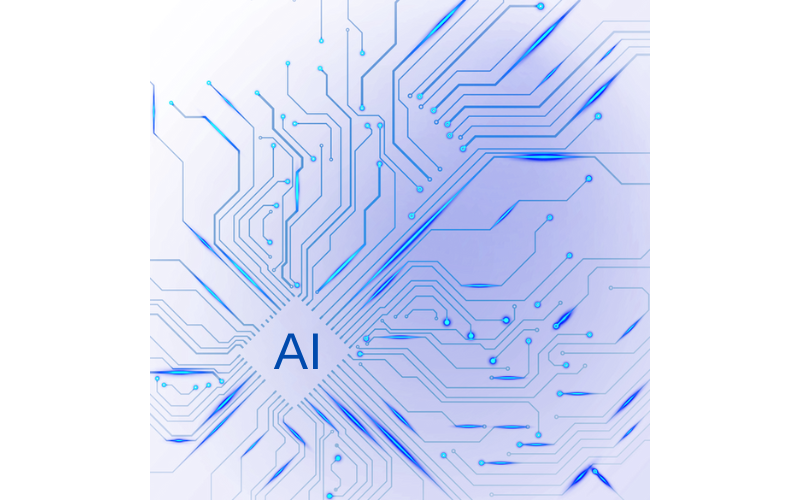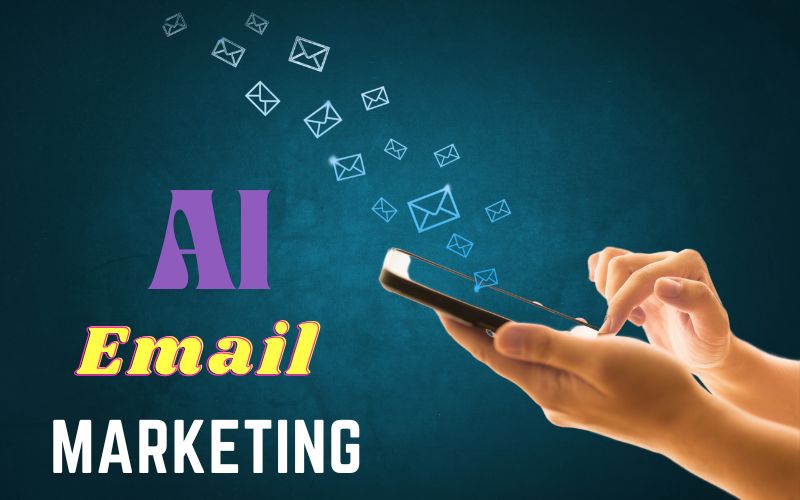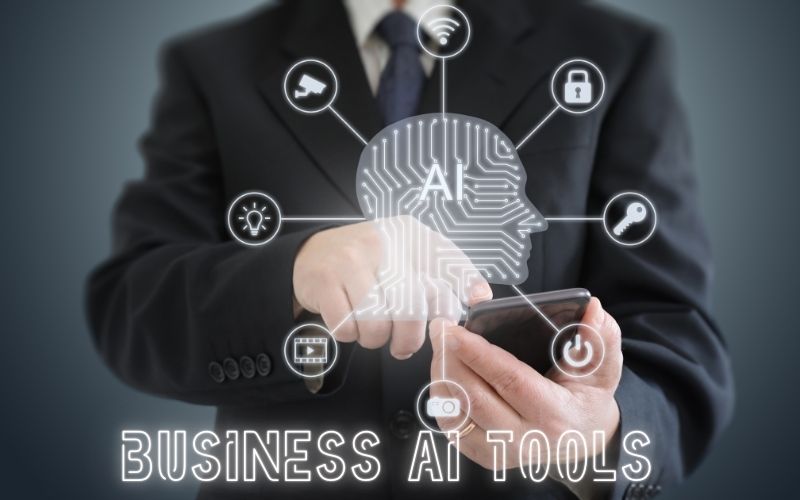The emergence of artificial intelligence (AI) has revolutionized the way remote job recruitment processes are conducted. With advancements in technology, organizations are now leveraging AI-powered platforms and tools to streamline their hiring procedures, making the transition from home to hire more efficient than ever before.
One of the key benefits of incorporating AI into remote job recruitment is the significant reduction in the time and effort required to screen and evaluate candidates. Traditional recruitment methods often involve manually sifting through numerous resumes and conducting extensive interviews, which can be time-consuming and labor-intensive. However, AI-driven platforms enable recruiters to automate these tasks, using algorithms to quickly identify qualified candidates based on specific criteria and qualifications.
Table of Contents
ToggleThe Impact of AI on Remote Job Recruitment Processes
AI-powered remote job recruitment platforms offer a targeted approach to candidate sourcing. These platforms leverage machine learning algorithms to analyze vast amounts of data, including job descriptions, qualifications, and candidate profiles. By doing so, recruiters can efficiently identify potential candidates who possess the necessary skills and experience, ensuring a more accurate match between job requirements and candidate suitability.
Another significant advantage of AI in remote job recruitment is its ability to enhance diversity and inclusivity. Unconscious biases can unintentionally influence traditional hiring processes, leading to a lack of diversity within organizations. AI can help mitigate this issue by removing human biases from candidate selection procedures. By relying on data-driven decision-making, AI-powered platforms can evaluate candidates based solely on their skills, qualifications, and experience, promoting a fair and inclusive recruitment environment.
Despite its numerous benefits, utilizing AI in remote job recruitment is not without its challenges and limitations. One of the primary concerns is the potential for algorithmic bias. If the algorithms used to evaluate candidates are not properly designed and trained, they may inadvertently discriminate against certain demographic groups, perpetuating existing inequalities. Therefore, it is crucial for organizations to continuously monitor and fine-tune their AI systems to ensure fairness and minimize bias.

Benefits of AI-powered Remote Job Recruitment Platforms
Remote job recruitment has become increasingly common in recent years, with a growing number of companies embracing the benefits of hiring remote employees. As this trend continues to gain momentum, organizations are turning to artificial intelligence (AI) to streamline and simplify their remote recruitment processes. AI-powered remote job recruitment platforms offer numerous benefits that make them an attractive choice for businesses looking to hire talent from anywhere in the world.
One of the key advantages of AI-powered remote job recruitment platforms is their ability to automate and accelerate the candidate screening process. Traditional recruitment methods often involve manually reviewing countless resumes and cover letters, which can be time-consuming and prone to bias. AI algorithms can quickly sift through large volumes of applications, analyzing keywords, skills, and experience to identify the most qualified candidates. This not only saves time but also ensures a fair and unbiased selection process.
Moreover, AI-powered platforms can significantly improve the quality of candidate sourcing. These platforms utilize sophisticated algorithms to search various job boards, social media platforms, and professional networking sites to identify potential candidates based on specific criteria set by the employer. By leveraging AI’s data analysis and machine learning capabilities, recruiters can easily find and connect with highly skilled professionals from diverse backgrounds and geographies.
Another benefit of AI-powered remote job recruitment platforms is their ability to enhance candidate engagement and experience. These platforms often incorporate chatbots and virtual assistants that can interact with candidates throughout the recruitment process, providing timely updates, answering questions, and collecting feedback. This personalized and automated interaction not only keeps candidates informed but also creates a positive impression of a company’s commitment to candidate satisfaction.
Additionally, AI-powered platforms excel at streamlining the communication and collaboration between recruiters and hiring managers. By automatically scheduling interviews, sending reminders, and centralizing all recruitment-related communication, these platforms eliminate the need for countless back-and-forth emails and phone calls. This not only saves time but also ensures that all stakeholders are on the same page throughout the hiring process.
While AI-powered remote job recruitment platforms offer many benefits, it is important to acknowledge their limitations. AI algorithms are only as good as the data they are trained on, and biases can inadvertently be introduced into the selection process if not carefully monitored and addressed. Therefore, it is crucial for organizations to establish robust guidelines and regularly evaluate the performance of these algorithms to ensure fairness and inclusivity.

The Challenges and Limitations of Using AI in Remote Job Recruitment
The advent of artificial intelligence (AI) has revolutionized various industries, including the recruitment sector. AI-powered solutions have streamlined the traditional hiring process, making it faster and more efficient. However, despite its numerous advantages, there are also challenges and limitations associated with the use of AI in remote job recruitment.
One of the primary challenges is the potential for bias in AI algorithms. AI systems rely on historical data to make predictions and decisions. If this data includes biased hiring practices or discriminatory patterns, the AI algorithms will inadvertently perpetuate these biases. For example, if historically male candidates have been favored for certain job roles, the AI algorithm may also prioritize male applicants, creating an unjust selection process. It is crucial for organizations to be aware of these biases and actively work towards mitigating them.
Another limitation of AI in remote job recruitment is the lack of human interaction. While AI can efficiently screen resumes, conduct initial interviews, and even evaluate skills through automated tests, it lacks the emotional intelligence and intuition that human recruiters possess. Building rapport, assessing cultural fit, and understanding a candidate’s motivations and aspirations are areas where AI falls short. This human element is invaluable in finding the right candidate who will not only excel in their role but also align with the company’s values and goals.
Furthermore, the implementation of AI in remote job recruitment may require significant financial investment. Developing and maintaining AI systems can be expensive, especially for small businesses or startups with limited resources. Additionally, training AI algorithms to accurately identify relevant candidates and predict job performance requires a substantial amount of high-quality data. The cost and accessibility of this data can pose challenges, particularly in niche industries or remote locations.
Data privacy and security concerns are also significant challenges when it comes to AI in remote job recruitment. AI systems require access to vast amounts of personal data, such as resumes, social media profiles, and other online information. Ensuring the protection of this data from unauthorized access, data breaches, or misuse is of utmost importance. Organizations must implement robust security measures and comply with relevant data protection regulations to maintain candidate trust and safeguard sensitive information.
Candidate Sourcing and Screening Revolutionized by AI in Remote Job Recruitment
The process of candidate sourcing and screening is essential in finding the right talent for remote job positions. Traditionally, this process has heavily relied on manual efforts, consuming a substantial amount of time and resources. However, with the advent of Artificial Intelligence (AI), remote job recruitment has been revolutionized, streamlining the process and enhancing its effectiveness.
One of the significant benefits of incorporating AI in remote job recruitment is the ability to source candidates from diverse platforms. AI-powered tools can analyze vast amounts of data from various sources, including resumes, professional networking sites, and job portals. By utilizing AI algorithms, recruiters can easily identify candidates with the desired skills and experience, regardless of their geographical location.
Moreover, AI brings significant improvements to the screening process. AI-driven tools can automatically filter and rank candidates based on predefined criteria, significantly reducing the time spent on manual screening. These tools use machine learning algorithms to analyze the skills, experience, and qualifications of candidates, matching them with the requirements of the remote job position. This automated screening process enables recruiters to focus their efforts on qualified candidates, expediting the hiring process.
Furthermore, AI-powered screening tools can also help identify potential biases in the selection process. Many organizations strive for diversity and inclusivity in their workforce. However, unconscious biases often hinder this objective. By using AI algorithms, recruiters can eliminate unconscious biases by focusing on the candidate’s qualifications rather than personal attributes. This ensures fair and objective candidate evaluation, promoting diversity in remote job recruitment.
Additionally, AI streamlines the communication process between recruiters and candidates. Chatbots, powered by AI, can interact with candidates, answer their queries, and provide updates on the recruitment process. This constant availability improves the candidate experience, fostering a positive impression of the organization.
Despite the numerous advantages brought by AI in remote job recruitment, there are some challenges and limitations to consider. The reliance on algorithms and data analysis may inadvertently exclude qualified candidates who do not meet specific keyword criteria. Therefore, it’s crucial for recruiters to combine AI-driven tools with human judgment to ensure a comprehensive evaluation of candidates.

AI-driven Tools and Technologies for Streamlining Remote Job Recruitment Processes
Advancements in artificial intelligence (AI) have revolutionized various industries, including the recruitment sector. With the increasing trend of remote job opportunities, AI-powered tools and technologies are playing a crucial role in streamlining the remote job recruitment process. These innovative solutions are transforming traditional recruitment methods and providing significant benefits to employers and job seekers alike.
One of the key areas where AI is enhancing remote job recruitment is in candidate sourcing. Traditional sourcing methods often consume a significant amount of time and resources. However, with AI tools, recruiters can automate and expedite this process. AI algorithms can scan numerous online platforms and databases, searching for the most suitable candidates based on predefined criteria. This allows recruiters to reach a wider talent pool quickly and efficiently.
Moreover, AI-powered screening tools have also gained popularity in remote job recruitment. These tools employ machine learning algorithms to analyze applicant resumes and rank them based on their skills, experience, and qualifications. This automated process significantly reduces the manual effort required for reviewing a large number of resumes. Recruiters can focus their energy on assessing the top-ranked candidates, ensuring more precise and efficient decision-making.
Another area where AI is streamlining remote job recruitment is in the interview process. AI-driven interview platforms utilize natural language processing (NLP) capabilities to conduct automated interviews with candidates remotely. These platforms can ask pre-determined questions and analyze the responses in real-time, evaluating factors such as communication skills and problem-solving abilities. By eliminating the need for initial phone screenings, AI-powered interview platforms save time for both employers and candidates, making the recruitment process more streamlined.
Additionally, AI tools for remote job recruitment offer advanced analytics capabilities. These tools can gather and analyze vast amounts of data, providing valuable insights throughout the hiring process. By tracking metrics such as time-to-hire, candidate quality, and diversity, recruiters can make data-driven decisions and continually improve their recruitment strategies. AI-powered analytics enable recruiters to identify bottlenecks, optimize workflows, and ensure a more efficient and successful recruitment process.
However, it is essential to acknowledge the limitations and challenges of using AI in remote job recruitment. While AI algorithms can automate several aspects of the recruitment process, they cannot replace human judgment entirely. Recruiters need to strike a balance between leveraging AI-driven tools and maintaining the human touch in the recruitment process. Additionally, ethical considerations and the potential for bias in AI algorithms should be carefully addressed to ensure fair and inclusive hiring practices.
Wrapping up
In summary, the incorporation of AI technology into remote job recruitment processes has revolutionized the way companies source, screen, and hire candidates. The impact of AI in this area has been overwhelmingly positive, offering numerous benefits for both employers and job seekers alike. AI-powered remote job recruitment platforms have streamlined the hiring process, saving time and resources, while enhancing the overall quality of candidate selection.
The benefits of using AI in remote job recruitment are numerous. Firstly, AI algorithms analyze vast amounts of data, enabling recruiters to source and screen candidates efficiently and effectively. Automated tools can match job descriptions with candidate profiles, identifying the most suitable candidates for remote positions. This significantly reduces the time and effort required to gather resumes and shortlist potential candidates manually.
Moreover, AI-driven remote job recruitment platforms have the ability to assess skills and qualifications, going beyond traditional resume screening. By leveraging machine learning capabilities, AI tools can identify patterns and trends in candidate resumes and evaluate them based on specific job requirements. This ensures that only qualified candidates are considered, leading to more successful hiring outcomes.
Despite the numerous advantages of AI in remote job recruitment, there are some challenges and limitations that need to be acknowledged. One of the main concerns is the potential for bias in algorithms, which can inadvertently discriminate against certain groups of candidates. Proper oversight and testing are essential to ensure that AI tools and platforms adhere to ethical standards and do not perpetuate bias in candidate selection.
Another challenge is the reliance on technology and the need for human intervention. While AI can streamline the initial stages of candidate sourcing and screening, human judgment and intuition are still necessary for making final hiring decisions. The human touch is crucial for evaluating cultural fit, interpersonal skills, and other intangible qualities that cannot be fully assessed by AI algorithms.
To enhance candidate sourcing and screening, AI-driven tools have been developed to complement the remote job recruitment process. Natural language processing (NLP) helps in analyzing candidate resumes and job descriptions, extracting key information and matching candidates to job requirements. Virtual assessment tools can simulate real-world scenarios, allowing employers to evaluate candidates’ abilities in remote work settings. Chatbots and virtual interviews provide an interactive experience for candidates, making the hiring process more engaging and efficient.
Overall, the integration of AI into remote job recruitment has transformed the way companies hire remote workers. By leveraging the power of AI algorithms and technologies, recruiters can streamline recruitment processes, enhance candidate sourcing and screening, and ultimately make more informed hiring decisions. However, it is important to strike a balance between technology and human judgment to ensure fair and successful remote job recruitment outcomes. With ongoing advancements in AI, the future of remote job recruitment holds even greater potential for enhancing efficiency, diversity, and overall candidate quality.










